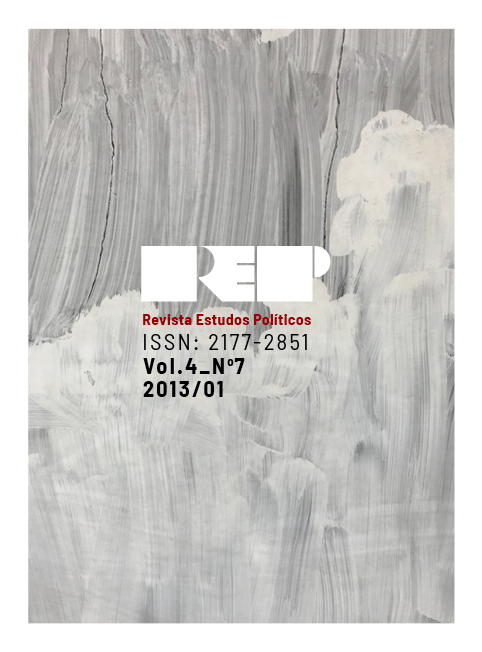From Gramsci to the theory of essential possessions: politics, culture and hegemony in the ‘The Hungarian Knights’
DOI :
https://doi.org/10.22409/rep.v4i7.40293Mots-clés :
Brazilian political thought, political theory, hegemony, Oliveiros Ferreira, Cultural Studies, state.Résumé
The Gramscian premise that culture is the main field of (re)production of domination and subordination as well as of the values that sustain inequalities and hierarchies is shared by many strands of political thinking, including the field of Cultural Studies. In Brazil, the concern with the complex intertwining of culture and politics has been object of reflection in various disciplines. In the field of political theory, this article draws attention to the thought of Oliveiros Ferreira contained in his book The 45 Hungarian Knights. The article presents and discusses the theory developed by the author, based on a particular reading of Gramsci. Thus, in the first section of this article we will show how Oliveiros Ferreira organizes the Gramscian thought (I). Next, we will expose the foundations of his remarkable “theory of essential possessions”, which purposes to contribute towards a “theory of hegemony” inspired by Gramsci (II). It will enable us to present the important role of the theory of essential possessions in Oliveiros Ferreira’s comprehension of the central Gramscian notions of civil society, political society, and state as well as his interpretation of the crisis of hegemony (III). Finally, we take up the question of the relationship between politics and culture in some of the exponents of the Cultural Studies, trying to point out the main differences between this strand of thought and the explanation offered by Oliveiros Ferreira for the same phenomenon.Téléchargements
Téléchargements
Publiée
Numéro
Rubrique
Licence
Para submeter um manuscrito, os autores devem realizar o cadastro na plataforma, fornecer os dados solicitados e seguir as orientações recomendadas. Para tanto, será necessário apresentar o número da identidade de pesquisador. Para obtê-lo, é necessário realizar o cadastro na plataforma Open Researcher and Contributor ID (ORCID).
Ao submeter um manuscrito, os autores declaram sua propriedade intelectual sobre o texto e se comprometem com todas as práticas legais relativas à autoria. A submissão implica, ainda, na autorização plena, irrevogável e gratuita de sua publicação na REP, a qual se responsabiliza pela menção da autoria.
A REP tem acesso aberto e não cobra pelo acesso aos artigos.
Orientando-se pelo princípio de que tornar público e disponibilizar gratuitamente o conhecimento científico contribui para a democratização mundial do conhecimento, a REP adota a política de acesso livre e imediato ao seu conteúdo.
No mesmo sentido, a REP utiliza a licença CC-BY, Creative Commons, a qual autoriza que terceiros distribuam, remixem, adaptem e criem a partir do trabalho, inclusive para fins comerciais, desde que se reconheça e torne público o crédito da criação original.
Para mais informações, contatar a editora através do e-mail revistaestudospoliticos@gmail.com


